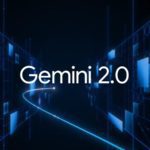Google has recently announced the introduction of its most sophisticated and expansive artificial intelligence model to date, named Gemini. This launch marks a significant step in AI development, showcasing three distinct versions of the model, each tailored for different levels of application.
The Three Faces of Gemini
- Gemini Ultra: This variant stands as the flagship model, boasting unparalleled capabilities and size.
- Gemini Pro: Designed for a broad spectrum of tasks, it reportedly surpasses the performance of OpenAI’s GPT-3.5.
- Gemini Nano: Specifically optimised for mobile devices and targeted tasks.
Applications and Availability
Starting on December 13, Google Cloud will offer Gemini Pro through the Gemini API, allowing developers and businesses to incorporate it into their applications. Moreover, Gemini Nano will be accessible to Android developers. These models will not only enhance Google’s internal products, like the Bard chatbot and the Search Generative Experience (SGE), but will also empower external enterprises with advanced customer service tools, trend analysis, and content creation capabilities.
Advanced Performance
Gemini Ultra has notably outperformed human experts in the Massive Multitask Language Understanding (MMLU) benchmark, demonstrating its proficiency in complex subjects like math, physics, and ethics. Sundar Pichai, Google’s CEO, highlighted Gemini’s multimodal nature, which is capable of processing diverse data types, including text, audio, images, and video.
Bard Chatbot and Future Plans
The Gemini Pro will soon enhance Google’s Bard chatbot, providing advanced reasoning and understanding skills. Furthermore, “Bard Advanced,” set to launch early next year, will utilise Gemini Ultra, marking the most significant upgrade to the chatbot since its inception.
Competition and Comparison
While Google executives confirmed Gemini Pro’s superiority over OpenAI’s GPT-3.5, they remained elusive regarding its comparison with GPT-4. However, a white paper released by Google suggests that Gemini’s Ultra model outperforms GPT-4 in certain benchmarks.
Monetisation and Market Strategy
Google is currently focusing on refining the user experience of these AI models, with no immediate plans for monetisation disclosed. The launch of Gemini comes amidst investor queries regarding Google’s strategy for profiting from its AI advancements.
Technical Innovations and Efficiency
Google also introduced its next-generation tensor processing unit, the TPU v5p chip, aimed at enhancing AI model training efficiency. Despite its advanced capabilities, Gemini Ultra is touted as being more cost-effective, aligning with Google’s efforts to streamline AI model training.
Looking Ahead
While the Search Generative Experience (SGE) remains an experimental feature, Google plans to incorporate Gemini into this offering within the next year. Pichai expressed excitement about Gemini’s potential to revolutionise various sectors and its significant contribution to Google’s scientific and engineering endeavours.
Opinion
Google’s Gemini AI model represents a leap forward in the AI landscape, demonstrating the company’s commitment to innovation and its vision for the future of AI technology. Its diverse applications, from enhancing consumer-facing products to empowering businesses with advanced AI capabilities, underline the growing influence of artificial intelligence in both our personal and professional lives.
As AI continues to evolve, the balance between innovation, ethical considerations, and market demands will be crucial in shaping its role in society. A role in which human endeavour might slowly begin to fade into the background as cheaper and more cost-effective AI products make their way into society.
Conclusion
Google’s ambitious Gemini project not only showcases the company’s prowess in AI development but also sets a new benchmark for the industry. The success of this project could redefine how we interact with technology and access information, heralding a new era of AI-driven solutions. The future seems bright for Google and its parent company, but Gemini’s introduction into society still leaves a few questions unanswered. The biggest of all being its role in “search.” This is clearly still a big case for investors as Google’s SEG search engine and AI experience program is still in development. However, this still feels like a minor bump in the road for the megacorporation seeking to finally dominate the AI space.
What’s Next?
What impact might Google’s Gemini have on the broader landscape of artificial intelligence and technology, and how will it shape our interaction with digital information in the future?
News Source: CNBC.
Related Post: Google Postpones Launch of Revolutionary AI Model Gemini









